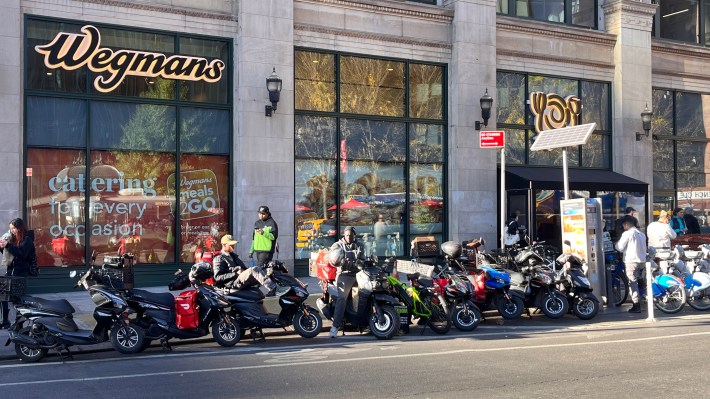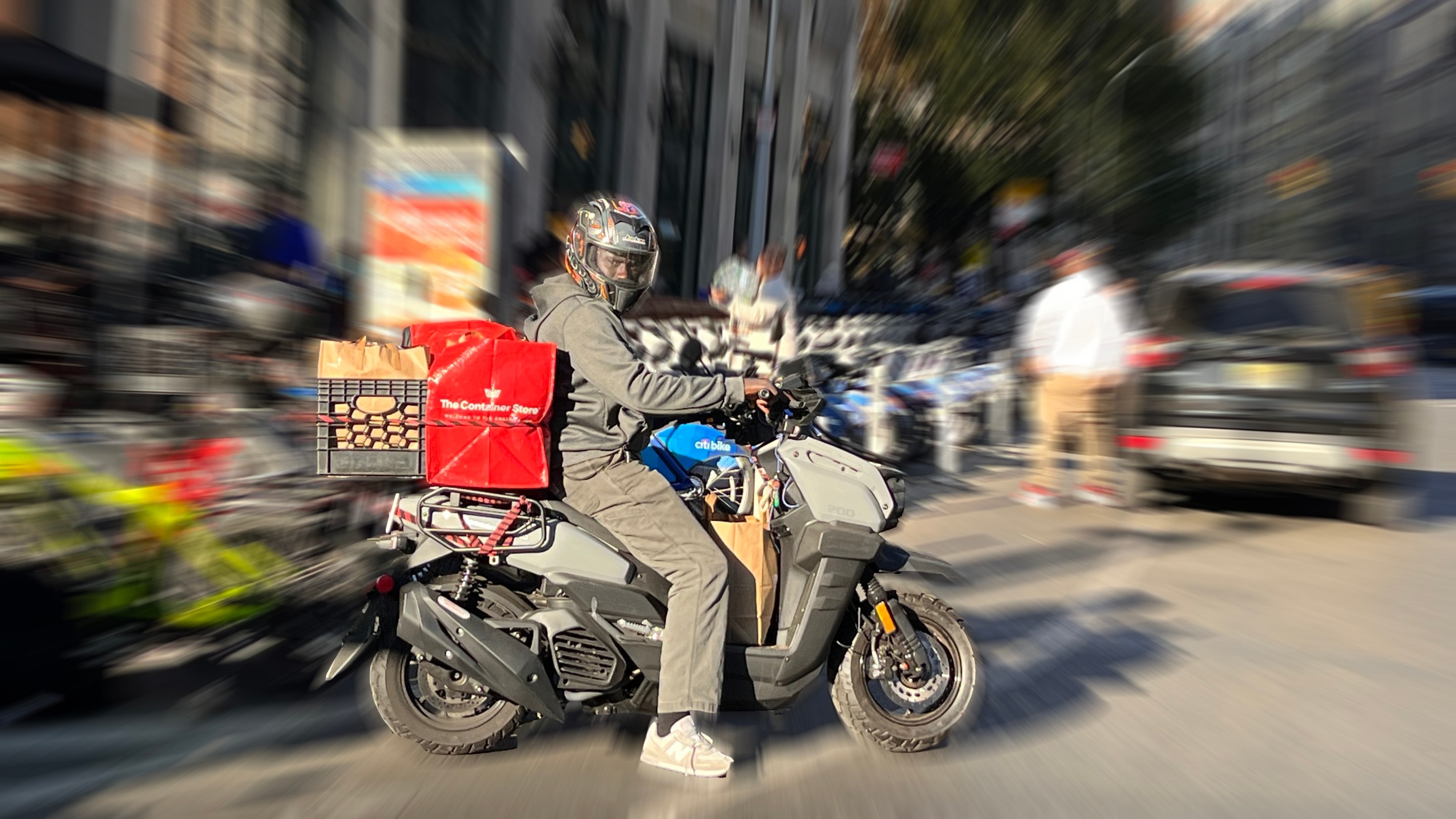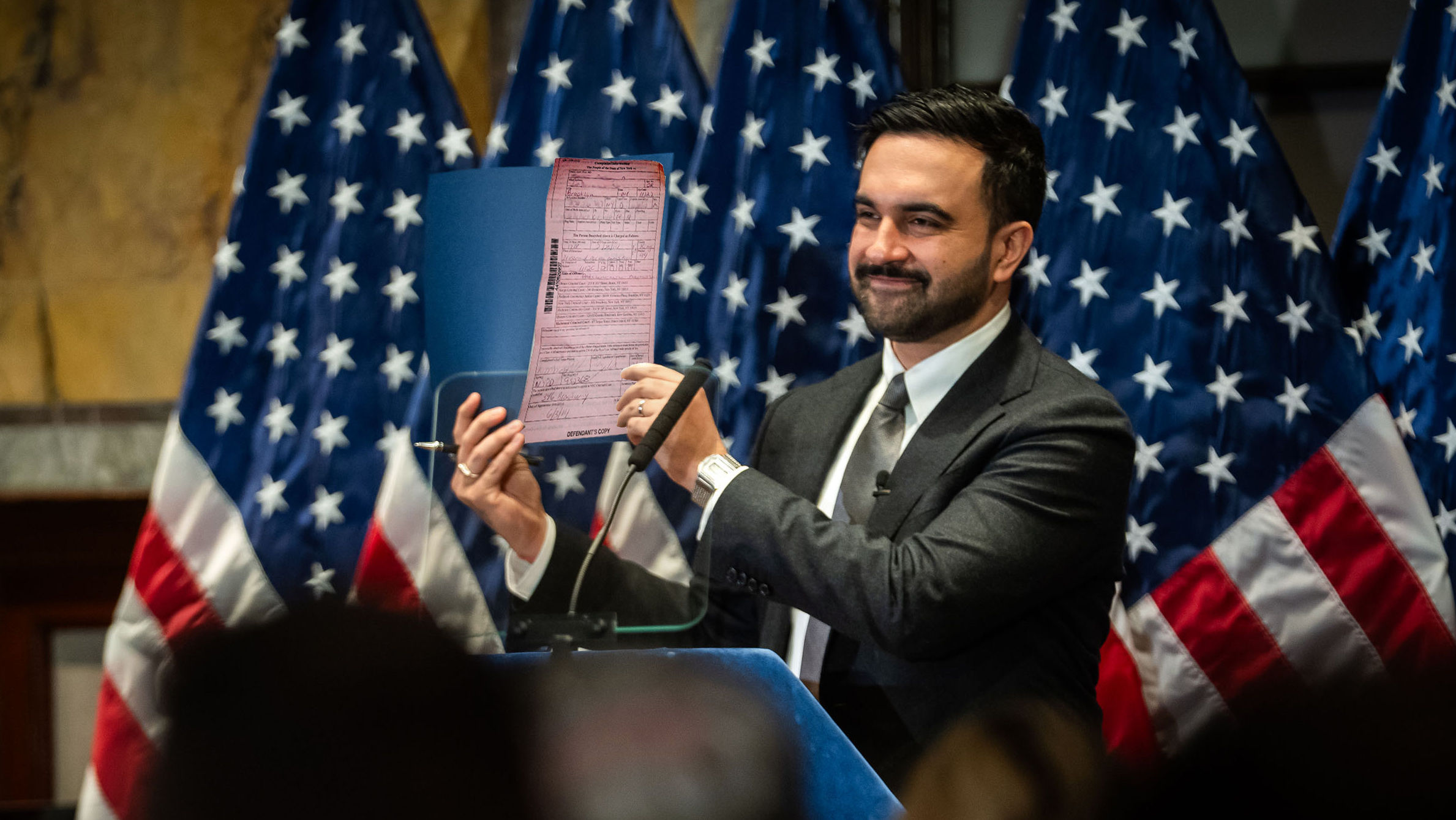Grocery delivery workers and others who were left out of the city's landmark deliverista minimum wage standard could see it expanded to include them thanks to two proposals before the City Council.
Council members Jennifer Gutiérrez and Sandy Nurse, both Democrats from Brooklyn, have introduced bills that would close a loophole that is allowing grocery delivery apps like Instacart to get around paying their workers the $20 per hour deliverista minimum wage that covers apps doing restaurant delivery, even though the work is largely the same.
The first bill would require that the Department of Consumer and Worker Protection expand the current minimum wage to include all “contracted delivery workers who deliver goods for a delivery service.” It would also require the department to study the working conditions of these workers and require app companies to provide workers with some equipment pertinent to their jobs. The second bill would specifically require “third-party grocery delivery services,” like Instacart, meet or exceed the minimum pay rate guaranteed to deliveristas.
The Council’s Committee on Consumer and Worker Protection will hold a hearing on both bills on Dec. 9. Advocates who fought for the deliverista minimum wage say expanding the protections to the growing number of gig workers riding for other apps is a welcomed inclusion.
“Regardless of the type of goods they carry, all delivery workers in New York City face significant risks and deserve safety, dignity and respect for their rights," said Ligia Guallpa the executive director of Worker's Justice Project, which fought for the original minimum pay law. "We have the opportunity to learn from that history so as not to repeat the mistakes of the past. This is an opportunity to act urgently – the longer we wait to provide such protections, the more we expose these essential workers to needless risk and labor abuse."
Many of the Instacart delivery are recent arrivals from Africa turning to the work as their only option after receiving their temporary work permits as part of the asylum-seeker process. Members of the Council's Immigration Committee, which held a hearing on the conditions for the city's black migrant population in April, say that these types of labor laws would be more effective if they worked in broader strokes.
“Why can’t we just have legislation that covers all gig workers in this new economy, given that so much of work has shifted in that direction?” said Council Member Alexa Avilés, another Brooklyn Democrat, who chairs the Council’s Immigration Committee. “When you become a worker, you should be ensured a living wage. Now we have been legislating this sector by sector. Unfortunately at the time when [the minimum wage law] was passed, Instacart wasn’t as big as it has become. We need to be able to legislate in broader terms so more workers are captured.”

Instacart, the largest grocery delivery company in North America, started operating in New York City in 2014 with workers who used cars to pick up and drop off orders. Many still do, but in 2022 the company allowed e-bike or moped riders to join the workforce, a lower threshold for new arrivals into the country.
The current minimum wage for restaurant app delivery work has been largely successful, bringing order to the previously unregulated restaurant delivery industry that promised flexibility above all else.
The Department of Consumer and Worker Protection said it looks forward to expanding the successful pay standard to more workers.
“We applaud the City Council for sharing our commitment to helping workers earn a more dignified wage,” said Michael Lanza, the agency's press secretary. "Thanks to the minimum pay rate, third-party restaurant delivery workers are earning an average of $22.48 per hour – a 112-percent increase from the same quarter the year before – and we look forward to expanding minimum pay rate protections to even more New York City delivery workers
For its part, Instacart said it is disappointed with the bill, citing the deliverista law as an example as to why the bill would negatively affect workers.
"Ultimately, if this legislation passes as written, shoppers in New York City could potentially lose access to flexible earnings opportunities, retailers may see a negative revenue impact, and grocery delivery may become less affordable for all the New York City families who rely on Instacart to access the nutritious food and essentials they need," an Instacart spokesperson told Streetsblog.






